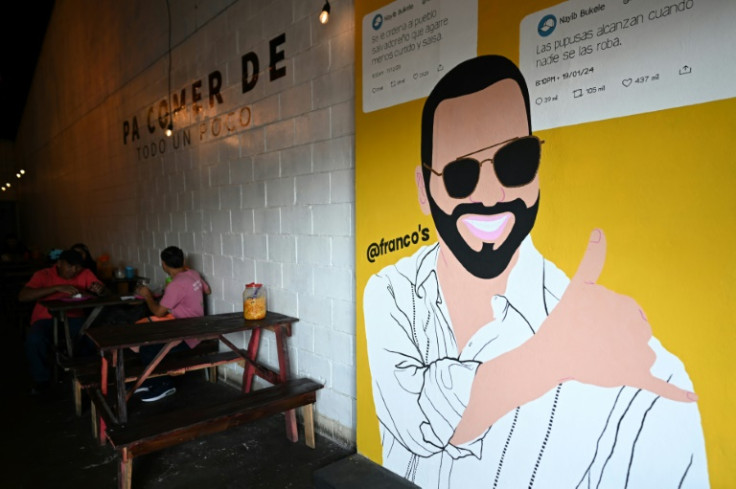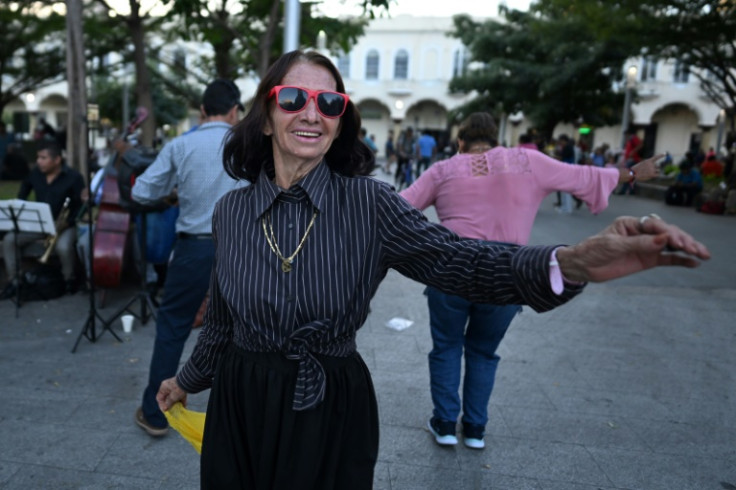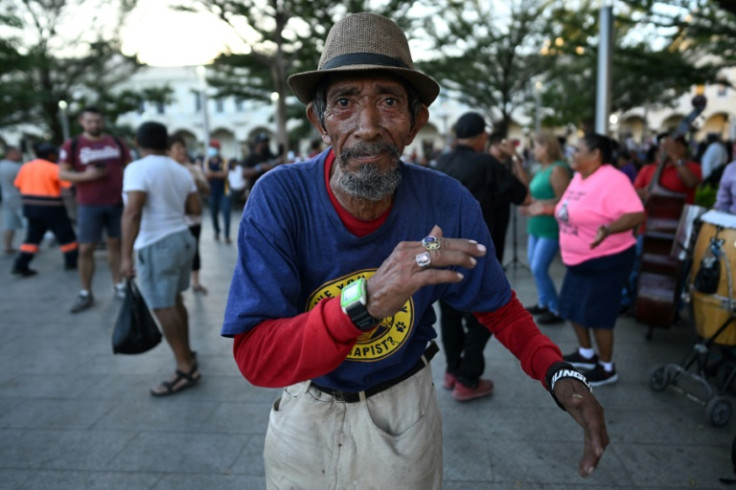
There is an unfamiliar air of serenity in El Salvador's capital, where voters head to the polls Sunday without the specter of gang violence and intimidation hanging over them for the first time in years.
Most of them will opt, they say, for incumbent President Nayib Bukele whose "war" on gangs they credit with improving the daily lives of a majority of Salvadorans almost overnight.
"Now more than ever we are in a democracy because we have a president who thinks about Salvadorans, who is governing for Salvadorans," Alvaro Perez, a 47-year-old carpenter in the capital San Salvador told AFP.
He was attending an impromptu dance party on a public square -- something that just two years ago would have been unthinkable.
"We call this peace, tranquility and freedom... it is something I never thought I'd see," said Perez.
More than 75,000 suspected gang members have been rounded up under a state of emergency introduced by the Bukele government in March 2022 after a horrific gang massacre that claimed 87 civilian lives in a single weekend.
And though it has come with allegations of widespread human rights violations under a president seen as leaning increasingly towards authoritarianism, for now the anti-gang campaign is an election winner.
Bukele polls as the most popular leader in Latin America, by far, and is expected to win hands down in Sunday's first voting round.
Uber driver Alberto Serrano, 40, told AFP how "everything has changed" since the crackdown began on gangs blamed for some 120,000 deaths since the end of El Salvador's civil war in 1992.
He worked formerly as a bus driver, and recounts fearing for his life at a time that gang members extorted money from all and sundry and killed people merely for entering neighborhoods under the control of rival groups.
"If they boarded the bus and told you, the passenger: 'Give me a dollar' and you refused, in the best case you would be beaten, in the worst, killed," said Serrano.
He started working for Uber only after the state of emergency took effect "because now... you can move freely anywhere you like. Without fear."
Nelson Rivas, a homeless man of 63, credits Bukele with being able to sleep at night.
"Thank God we have found a president who has cleaned up all the areas" of gangs, he told AFP. "When I am sleeping in the street I feel like I am in a palace, nothing happens, nobody touches us."
It is an oft-repeated sentiment in a country where people say they feel free and safe for the first time in recent memory, even at night, and small businesses can operate without having to pay protection money.
In a report last month, the International Monetary Fund said an "unprecedented reduction in crime, and strong remittances and tourism revenues" since the state of emergency contributed to robust economic activity in 2022, driven by domestic demand.
Last year, the country that was once one of the most dangerous in the world even hosted the Miss Universe pageant -- a feat Bukele said showed El Salvador "has forever changed."
The president's popularity is in plain view all over the capital, where vendors make bustling sales of T-shirts, coffee mugs, baseball caps, keyrings, watches, dolls, piggy banks and aprons all bearing his image.
"Even the foreigners tell us, lend us Bukele," street seller Gloria de Echeverria, 53, told AFP in the capital.
And while there are Salvadorans denouncing arbitrary arrests, torture and inhumane prison conditions as part of Bukele's crackdown, the undeniable rejoinder is the lowest homicide rate in three decades recorded last year.
"If this is a dictator, he is welcome," said Oscar Martinez, 54, a Salvadoran who works in the United States, and bought a T-shirt on a visit home with a photo of Bukele and the words "El Salvador reborn."
"If this is dictatorship, everybody would want one."








